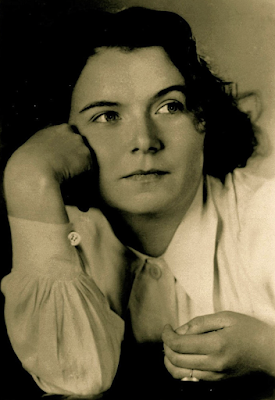President Biden has proclaimed May 2023 as Jewish American Heritage Month, calling upon all Americans to "learn more about the heritage and contributions of Jewish Americans."
Celebrating famous female cannabis connoisseurs throughout herstory to the present day. All contents copyrighted. "Bright Leaf" artwork by Jean Hanamoto http://www.camomoto.com
Thursday, May 11, 2023
Jewish American Heritage Month and Marijuana
President Biden has proclaimed May 2023 as Jewish American Heritage Month, calling upon all Americans to "learn more about the heritage and contributions of Jewish Americans."
Monday, May 1, 2023
Tokin' Women and Others We Lost in April 2023
Oboist Tindall's book Mozart in the Jungle: Sex, Drugs and Classical Music blew the lid off the classical music world, and the Amazon series based on it won the Golden Globe in 2016 for best television series, comedy or musical. Two female members of the orchestra (shown) bond over a pipe in the series, where the drummer (natch) is the peddler. Tindall earned bachelor’s and master’s degrees at the Manhattan School of Music and played in the pit orchestras of “Miss Saigon” and “Les Misérables.” After earning a masters in journalism at Stanford, she wrote for various newspapers, pieces like Better Playing Through Chemistry and Psychedelic Palo Alto. She her fiancé, the photographer Chris Sattlberger, planned to marry on May 1. Tindall died at the age of 63 of cardiovascular disease.
 |
A writer and media observer who served as ombudsman of NPR, Shepard examined the lives of Washington Post reporters Bob Woodward and Carl Bernstein in a book about the legacy of the Watergate investigation, and chronicled her adventure sailing across the South Pacific with her infant son in tow. She spent the early years of her career as a general-assignment reporter for the San Jose Mercury News, and freelanced over the years for publications including The Washington Post, the New York Times, USA Today and Washingtonian magazine. She later taught journalism at the University of Nevada, Las Vegas, and media ethics at the University of Arkansas. Source.
Wednesday, April 26, 2023
Positive Cannabis Test Strips US Long Jumper Tara Davis-Woodhall of National Title
 |
| PHOTO: Patrick Smith |
Thursday, April 13, 2023
Mary Lou Williams: Rolling 'Em
The stunning 2015 documentary Mary Lou Williams: The Lady Who Swings the Band, now viewable on Kanopy via your local public library, presents the huge talent, prominence, and lack of acceptance of this pioneer jazz pianist, arranger and composer.
Born Mary Elfrieda Scruggs in Atlanta, Mary Lou Williams grew up in Pittsburgh, where she taught herself to play the piano at the age of four and began playing publicly two years later, to much acclaim and popularity. In 1924 she began touring on the Orpheum Circuit and the following year she played with Duke Ellington and the Washingtonians.Monday, April 3, 2023
Artists “Make a Marc” to Bring Marc Fogel Home from Russian Prison for Pot
 |
| Portraits of Marc Fogel by Sasha Phillips, Tom Mosser and others at the 4/1 "Make a Marc" Show |
Nearly 100 artists contributed works to a well attended “Make a Marc” art show in Pittsburgh on April 1 to bring attention to the case of Marc Fogel, a 61-year-old high school history teacher from Oakmont, PA who is serving a 14-year sentence in Russia for bringing ½ oz. of medical marijuana into that country in August 2021.
In attendance were family and friends of Fogel, including his 94-year-old mother; his attorney Aleksandra “Sasha” Phillips; faculty from the University of Pittsburgh Center for Russian, East European and Eurasian Studies; and Field Representative Robbie Matesic of Sen. Bob Casey’s office, who read a statement from the Senator about his ongoing commitment to bringing Fogel home, calling him “a passionate and talented educator and a devoted husband and father.”
Marc’s sister Lisa Hyland said the family speaks to the US State Department weekly and they tell her every week how many letters have been received in support of Fogel’s release. Supporters are asked to write to Secretary of State Anthony Blinken asking for Fogel to be designated as “wrongfully detained” in the way that WNBA star Brittney Griner was designated after she was imprisoned for bringing cannabis vape pens into Russia, before her release in a prisoner swap late last year. You can also Sign a Change.org petition to Free Marc Fogel.
The event happened just as Wall Street Journal reporter Evan Gerhkovich was detained in Russia on espionage charges, leading the Pittsburgh Tribune-Review to publish an editorial titled, “Reporter arrested in Russia should remind White House of Marc Fogel." Last month, the Best Documentary Oscar went to “Navalny” about the imprisoned rival to President Putin.
Saturday, April 1, 2023
Tokin' Women and Others We Lost in March 2023
Sunday, March 12, 2023
More US Women Are Smoking Weed But They're Still Reluctant to Admit It
 The top three reasons women said they use cannabis are to relieve anxiety (60%), to help them sleep (58%), and to relieve pain (53%). It's possible women still don't want to admit that they use cannabis recreationally.
The top three reasons women said they use cannabis are to relieve anxiety (60%), to help them sleep (58%), and to relieve pain (53%). It's possible women still don't want to admit that they use cannabis recreationally.


















